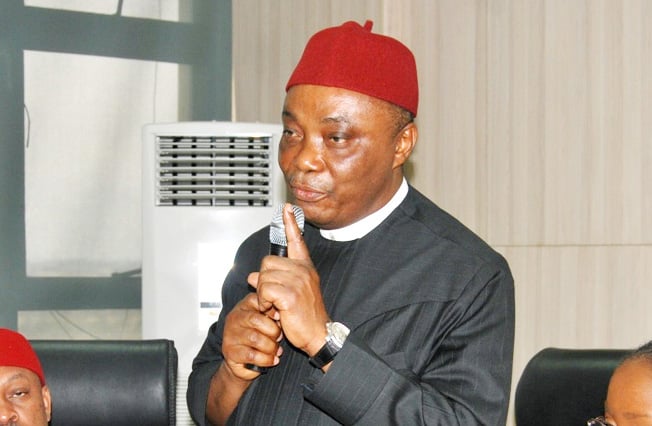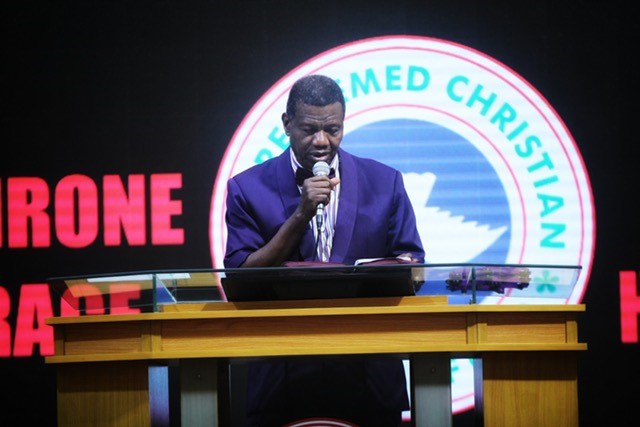Two things the Osun and Kano state governorship elections have in common: they didn’t end on the first ballot; candidates of the ruling All Progressives Congress (APC) carried the day after trailing their Peoples Democratic Party (PDP) counterparts in the first round.
Another issue to consider in both elections is the violence that marred the process. Supporters of the opposition were hounded under the watch of security agencies but in the end, the apex court upheld the election of Isiaka Oyetola of Osun as Abdullahi Ganduje, his Kano counterpart, awaits his day in court.
Salihu Tanko, an aide to Abdullahi Ganduje, Kano governor, said the verdict of the supreme court on Osun election has put to rest “the constitutionality of supplementary elections.”
“With the supreme court ruling on the Osun elections, the constitutionality of supplementary elections is now put to rest. The Kano PDP based its argument solely on this, and with this ruling, it’s safe to say that Ganduje will win in the tribunal too In Sha Allah. #AikiTill2023,” Tanko tweeted hours after the ruling.
Advertisement
With the supreme court ruling on the Osun elections, the constitutionality of supplementary elections is now put to rest. The Kano PDP based its argument solely on this, and with this ruling, it's safe to say that Ganduje will win in the tribunal too In Sha Allah. #AikiTill2023 pic.twitter.com/X8ubXkG8pP
— Peacock (@dawisu) July 5, 2019
Advertisement
Five justices on the seven-man panel upheld Oyetola’s victory while two were in favour of Ademola Adeleke, candidate of the PDP.
While reading the majority judgement, Olabode Rhodes-Vivour agreed with the appeal court’s verdict setting aside the entire proceedings of the Osun election petitions tribunal. The tribunal had declared Adeleke winner of the election but the appeal court upturned that short-lived victory after Oyetola appealed it.
Rhodes-Vivour explained that the failure of J. Obiora, a member of tribunal, to attend proceedings on February 6 rendered the judgement of the tribunal “nullity.” The justice also said the certified true copy (CTC) of the judgement was not signed by Obiora.
It was on these grounds he and four other judges including Ibrahim Muhammad, acting chief justice of Nigeria (CJN), set aside the judgement of the tribunal. However, what the majority judgement of the supreme court failed to address – at least while Rhodes-Vivour read the verdict – was the findings of the apex court on controversial circumstances around the rerun.
Advertisement
While reading out the minority judgement, Kumai Akass, a member of the panel, said declaring the Osun governorship election inconclusive showed that “INEC had something up its sleeves.”
He alleged that the electoral commission declares polls inconclusive “to do what it wants to do.” Nigerians need a reformed INEC especially with allegations that it is a tool of the ruling party.
“For INEC to pronounce the election election inconclusive shows that it had something up its sleeves and it was able to achieve that through the rerun. INEC uses inconclusive elections to do what it wants to do,” he had said.
The dissenting justice also said there said a judge does not have to sign a certified true copy (CTC) of a judgement before it is valid. The failure of the majority judgement to examine or make findings about the declaration of the Osun governorship election as inconclusive and the controversial rerun, thereafter, is worrisome.
Advertisement
Adeleke and PDP claimed that about a thousand of their votes were destroyed before the election was declared inconclusive.
During the rerun, there were reports of voter intimidation, snatching of ballot boxes and what many described as “unprecedented violence” but Oyetola was declared winner after the process.
Advertisement
In his reporter’s diary, Taiwo Adebulu, a colleague of mine who covered both the rerun and the main election, detailed the anomalies of the poll.
“The villages where voting was supposed to take place were no longer accessible as the thugs had established a kingdom of terror,” Adebulu had narrated.
Advertisement
“Those who attempted to force their way to the polling units were beaten and sent back, while their permanent voter cards (PVCs) were snatched from them.”
Irrespective of party affiliation, it was clearly established in the court of public opinion, that the whole process was marred by violence. However, what is more worrisome is that the judgement on Osun appears to be setting bad precedence for future election matters. I daresay the electoral commission is our major problem. If Ganduje had been worried that nemesis could catch up with him over what happened in Kano three months ago, something tells the supreme court judgement of today has made him more confident. As sad as it is, the decision of the apex court is final.
Advertisement
Shibayan tweets @justdyepis.
Add a comment







